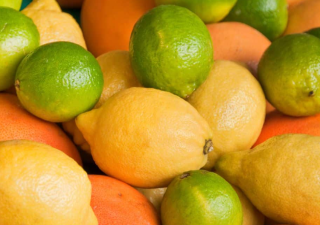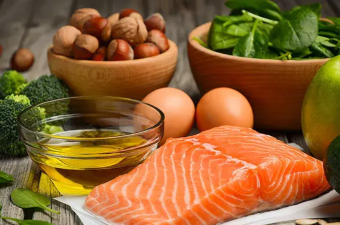Which Foods Really Help Cleanse Your Liver?
The liver is a vital organ in the human body, performing metabolic, detoxification, and secretion functions. Maintaining liver health is crucial for overall health. Diet plays a crucial role in liver health. Eating more liver-nourishing foods not only cleanses and soothes the liver but also nourishes it, safeguarding its health.
The liver is a vital organ in the human body, performing metabolic, detoxification, and secretion functions. Maintaining liver health is crucial for overall health. Diet plays a crucial role in liver health.
Eating more liver-nourishing foods not only cleanses and soothes the liver but also nourishes it, safeguarding its health.
Eggs - Repair Damaged Liver Cells
The high-quality protein in eggs is essential for the liver to repair damaged cells and tissues. Adequate protein intake is crucial for restoring normal liver function when the liver is damaged or attacked by disease.
Egg whites also contain ovalbumin, which helps detoxify the liver and reduces its burden.
Note: Adults are advised not to consume more than one egg per day. Those with specific health conditions should exercise caution when limiting their intake.
Mushrooms - Help Detoxify the Liver
Mushrooms are rich in vitamins and minerals, which aid in liver detoxification and repair, promoting metabolic function. Furthermore, the dietary fiber in mushrooms can remove toxins from the intestines, effectively reducing the burden on the liver.
Lemons

Lemons are rich in vitamin C. Drinking lemon water can promote liver cell repair, speed up metabolism, and reduce the burden on the liver. Drinking lemon water also helps detoxify the body and aid liver detoxification. It also promotes bile production, which helps cleanse the liver.
Green Leafy Vegetables
Green leafy vegetables are rich in vitamins, minerals, and antioxidants, such as chlorophyll, flavonoids, and vitamins C and E. Some leafy greens, such as spinach, kale, and broccoli, are also rich in chlorophyll, which helps remove toxins and free radicals from the body, reducing the burden on the liver.

In addition to diet, several other factors are important for liver health, including:
- Control your alcohol intake: Excessive alcohol consumption can damage the liver and lead to conditions such as fatty liver disease and alcoholic hepatitis. Limiting or avoiding alcohol is an important measure to protect liver health.
- Avoid excessive medication: Certain medications may have side effects on the liver. Follow your doctor's advice and avoid medication abuse. If you need long-term medication, have your liver function checked regularly.
- Maintain a healthy weight: Obesity and fatty liver disease are linked, and maintaining a healthy weight can reduce your risk of liver disease. Maintain a balanced diet and moderate exercise to manage your weight.
- Avoid exposure to toxins: Minimize exposure to harmful substances such as chemical toxins, pesticides, and heavy metals. Follow safe operating procedures and wear appropriate protective equipment.
- Regular physical examinations: Get regular physical examinations, including liver function tests, to detect and address any potential liver problems early.
It is important to note that for some people with specific liver diseases or health issues, their diet may require more specific adjustments. In these cases, it is best to consult a doctor or a professional nutritionist. Furthermore, liver-clearing foods should not replace medical treatment. If symptoms of liver disease, such as jaundice, abdominal pain, and fatigue, occur, seek medical attention promptly for diagnosis and treatment.
In short, a balanced diet and other healthy lifestyle choices can help clear the liver and maintain liver health. Maintaining a balanced diet, exercising moderately, controlling alcohol consumption, and avoiding excessive medication are all important measures to protect the liver.
